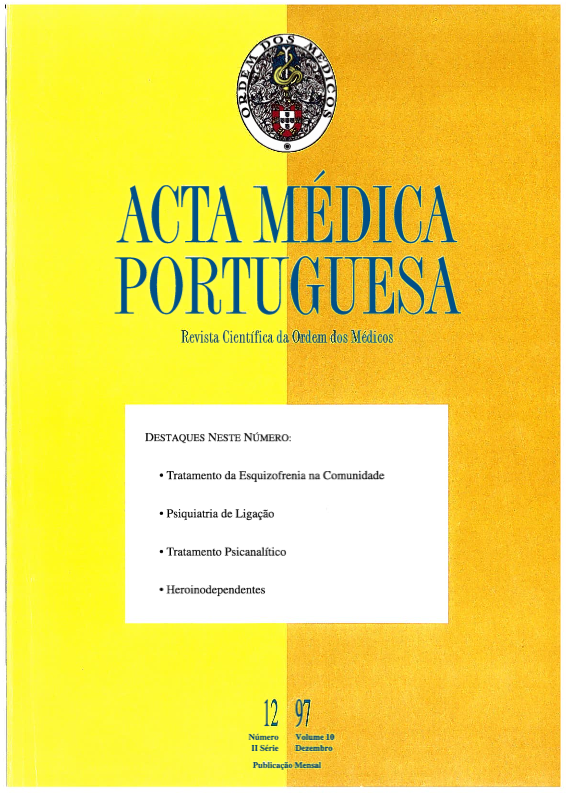The influence of sociodemographic and familial factors on the therapeutic evolution of heroin addicts in a program of staged combined treatment.
DOI:
https://doi.org/10.20344/amp.2527Abstract
In this study the authors evaluate the history of drug abuse, the familial and sociodemographic influence on the clinical evolution of 74 heroin-addicts, admitted sequentially to a therapeutic drug-free program named Sequential Combined Treatment (SCT), based on family and individual counselling, with a daily administration of naltrexone and with regular evaluation of drug abstinence, based on urinary analysis collected by family members. The enrollment rate recorded was 76%, and the participation rates during the course of the program were 88% after 3 months of administering the antagonist, 57% after 6 months, 47% after 9 months and 46% at the end of the 12th month. The results showed that age and previous scholarship levels, as well as parental or marital conflicts were significant predictors of over the subjects' total participation time in the program. The heroin-addicts with higher levels of scholarship or with drug abuse problems with other family members had more relapses during the treatment. No differences were found in the clinical variables of the therapeutic evolution among drug-addicts belonging to nuclear or enlarged family structures and single-parent or reconstructed family structures, which suggests that Sequential Combined Treatment (SCT) seems to have sufficiently similar results independently of the type of family structure to which they belong.Downloads
Downloads
How to Cite
Issue
Section
License
All the articles published in the AMP are open access and comply with the requirements of funding agencies or academic institutions. The AMP is governed by the terms of the Creative Commons ‘Attribution – Non-Commercial Use - (CC-BY-NC)’ license, regarding the use by third parties.
It is the author’s responsibility to obtain approval for the reproduction of figures, tables, etc. from other publications.
Upon acceptance of an article for publication, the authors will be asked to complete the ICMJE “Copyright Liability and Copyright Sharing Statement “(http://www.actamedicaportuguesa.com/info/AMP-NormasPublicacao.pdf) and the “Declaration of Potential Conflicts of Interest” (http:// www.icmje.org/conflicts-of-interest). An e-mail will be sent to the corresponding author to acknowledge receipt of the manuscript.
After publication, the authors are authorised to make their articles available in repositories of their institutions of origin, as long as they always mention where they were published and according to the Creative Commons license.









